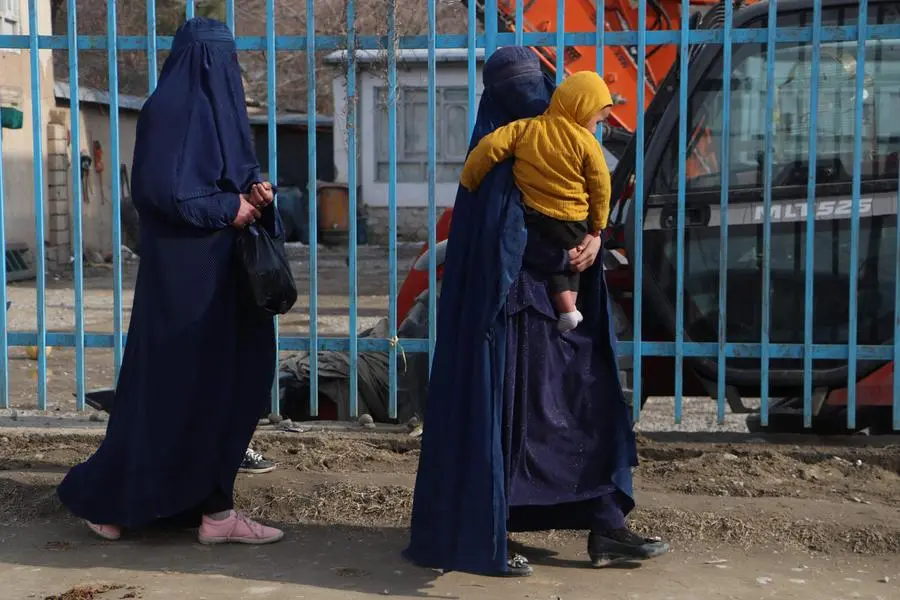PHOTO
Small groups of Afghan women on Friday staged rare demonstrations to mark International Women's Day in private spaces, after a crackdown by Taliban authorities forced activists off the streets.
Since surging back to power in August 2021, Taliban authorities have imposed a strict interpretation of Islam, with women bearing the brunt of curbs the United Nations has labelled "gender apartheid".
Women have been squeezed from public life, barred from travelling without a male relative and banned from certain jobs, secondary school and university as well as parks, fairs and gyms.
A handful of women in several provinces gathered to demand restrictions be lifted, according to activists from the Purple Saturdays group which protests Taliban government curbs on women.
In northern Takhar province, images circulated by activists showed seven women holding papers obscuring their faces, reading "Rights, Justice, Freedom".
In Balkh province, several women also held up signs saying "Don't give the Taliban a chance" in front of a banner reading, "Save Afghanistan Women".
There were no reports of women's protests in public spaces by Friday afternoon.
On Thursday, around 20 women gathered at an office for an event organised by the Afghanistan Association of the Blind in northern Mazar-i-Sharif city.
"The gates of schools, universities and offices should be opened for all women," said one attendee, who remained anonymous for security reasons, during the meeting.
"It is very painful that a woman has no value in our society today. She cannot use any of her rights."
Also on Thursday, the Independent Coalition of Afghanistan Women's Protest Movement issued a statement demanding "immediate and serious action from the international community against the clear violation of human rights and obvious crimes the Taliban are committing against Afghan women".
The UN mission in Afghanistan, UNAMA, on Friday urged the Taliban government to lift restrictions on women and girls, saying not doing so risked "further pushing the country into deeper poverty and isolation".
"The space for Afghan women and girls continues to shrink at an alarming pace, and with it Afghanistan's future prospects to escape a vicious cycle of war, poverty, and isolation," said Alison Davidian, Special Representative for UN Women in Afghanistan, in a statement.
Taliban authorities have repeatedly dismissed such international criticism.
Taliban government spokesman Zabihullah Mujahid said a recent report by the UN special rapporteur on human rights in Afghanistan highlighting restrictions on women and girls was "propaganda".
Women have protested sporadically against rules handed down by the Taliban authorities, but often in small groups and indoors out of fear of reprisal after several activists were detained for months.





















